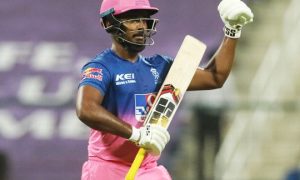Dhamaka is not the first time that Bollywood has tried its hand at remaking a South Korean thriller. Sadly, it will also not be the last.
It’s incredible but not surprising that Ram Madhvani managed to turn writer-director Kim Byung-woo’s superb 2013 South Korean thriller The Terror Live into a mediocre film.
In their misguided attempts to Indianise intelligent pulp fiction, Bollywood filmmakers and screenwriters have a habit of tempering the cynicism and gore of South Korean thrillers. They infuse the material with the worst tendencies of Bollywood filmmaking: deep-fried sentimentality, turgid dialogue and emphasising every beat with background score that is usually unremarkable.
The pioneers of the trend are Sanjay Gupta, who remade Oldboy (2003) as Zinda (2006), and Mohit Suri, who has three South Korean remakes under his belt: A Bittersweet Life (2005) remade as Awarapan (2007), The Chaser (2008) remade as Murder 2 (2011), and I Saw The Devil (2010) remade as Ek Villain (2014).
Ram Madhvani, a better director than Gupta and Suri, and co-writer Puneet Sharma, chose a relatively simpler film to adapt. Mostly set in a news studio, The Terror Live follows a news anchor held hostage in his seat during a live broadcast as he is made to negotiate with a man claiming to be a construction worker, who has bombed a bridge he had helped build. He is threatening to cause more damage if the president does not apologise to him for not compensating the families of his ex-colleagues who died while working on the bridge.
The story unfolds as a morality play in which the anchor then has to choose between helping the man get his apology–which would save lives but leave the government red-faced–and sticking to his boss’s brief which would lead to many deaths but bring high viewership to the channel. The film’s themes and its pessimistic denouement highlight government apathy and the complicity of private news channels in politicians’ misadventures.
Spoilers for Dhamaka ahead.
When the first lockdown was announced amid the coronavirus pandemic last year in March and without any advance notice, video footage of migrant labourers walking hundreds of kilometres to return home invited widespread criticism of the government’s mismanagement. Lockdown-related deaths of returning labourers were extensively reported, but the Union labour ministry announced that since they had no record of migrant deaths, the question of compensation does not arise.
In this political climate, and with a straightforward plot at hand, Madhvani and Sharma had fertile ground to build Dhamaka on. Their choice of architectural casualty, the Bandra-Worli Sea Link in Mumbai, is smart.
But they drop the ball at the beginning itself by miscasting a limited actor like Kartik Aaryan as the anchor Arjun. Their worse mistake is making the disgruntled construction worker want an apology from some minister Patil, and not the Prime Minister, the natural Indian equivalent of South Korea’s President. An apology from a Patil isn’t dhamaka enough, is it?
Further decisions that suck the life out of what could have been a terrific film are the aforementioned problems plaguing previous Bollywood remakes of South Korean property.
Madhvani and Sharma’s decision to over-explain the film’s themes leads to heavy-handed dialogue about how selfish and predatory news channels are. The insights about the news business here are probably not new to the Netflix audience.
But Amruta Subhash’s unfussy portrayal of Arjun’s boss as a no-nonsense commander-in-chief who knows what is at stake and how to manoeuvre it is top-notch.



































